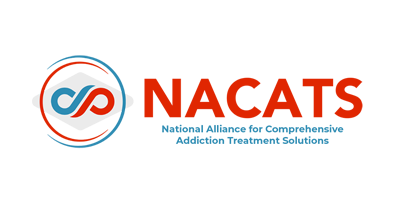You didn’t take the pill thinking it would begin something. You wanted to have fun and let loose, and everyone at the party was taking pills out of the candy bowl. Once you swallowed that little white pill, everything changed. You were calm, relaxed, and felt like never before. You had to know what it was, you needed this feeling to continue.
It was your friend who brought the pills, and he tells you it was codeine. He has more, anytime you want you can get some. Before you knew it, you were taking it every day. It didn’t matter the situation, before work, during lunch, or after a workout, codeine had become a part of your routine. You started noticing your anxiety would spring into action when you didn’t have codeine, and you would feel like your stomach and muscles were in knots. It wasn’t supposed to be like this, you just wanted to have fun at the party. But now, codeine has taken over. Is there a way out of this? Do they make treatment for codeine use?
In 2019, over 5 million pain medication prescriptions were dispensed throughout Tennessee. At ReVIDA® Recovery, we understand that some of these prescriptions are not always used properly, and some may decide to sell their medication or even have some stolen without their knowledge. Our program offers flexible outpatient treatment and medication-assisted treatment (MAT) for opioid use disorder. We have seen the success MAT provides for patients who have lost hope. That’s why we utilize this tool to help them find recovery. Let’s dive into codeine addiction treatment and how codeine use disorder develops.
What We Treat: Understanding Codeine
Codeine is an opioid, meaning it binds to opioid receptors to block pain sensations. It also produces a euphoric, relaxing effect. Codeine is often used medicinally to treat chronic pain or to ease pain after surgery. However, dependence can still occur even when taking the medication as prescribed. When taken recreationally, dependence can develop quickly, often before the person realizes it.
The Causes Behind a Codeine Use Disorder
When codeine is taken for a period of time, the brain and body become used to having it in the system. The body will adjust to its presence and will begin to need more to achieve the same effects. The person will require higher or more frequent doses to feel the euphoric effects. This is the start of dependence, which can quickly turn into a codeine use disorder. Codeine use disorder falls under the DSM-5 category of an opioid use disorder. It is characterized by a list of criteria, including:
- Cravings or a strong desire to use codeine
- Taking more codeine than desired or for longer than necessary
- Experiencing withdrawal symptoms
- Continued use despite negative social and interpersonal consequences
- Continued use despite negative work performance

Codeine Addiction Treatment: What Does it Entail?
Codeine addiction treatment will have a variety of therapies and classes. Cognitive behavioral therapy (CBT) is a common treatment used for codeine use disorder. CBT helps you change your thought process and feelings through practical, self-help strategies. This type of therapy can be utilized in an individual or group setting.
Classes may include coping skill development and life skill management. As codeine becomes more common in your life, you may not remember how to manage different areas without its presence. Classes such as money management, job skill training, and relationship development can help you relearn yourself and how to get through life healthily. Coping skill development will help prevent a return to use when times become challenging. Stress management and healthy coping skills will allow you to navigate difficult times without codeine.
Our Approach to Codeine Use Disorder Treatment
At ReVIDA® Recovery, we understand how seeking codeine use disorder treatment may seem daunting. Our program is flexible as we utilize outpatient services to accommodate different work schedules. You can expect therapy and skill-building classes in both individual and group settings. Case managers are available to help with housing and job needs.
We also utilize MAT as part of our program offerings. Suboxone treatment has helped many find their success in recovery where other programs have failed. We are proud to provide this treatment and have dedicated medical professionals who can help you figure out if this treatment is an option for you.
Codeine Addiction: Are Their Signs & Symptoms?
A person living with a codeine use disorder may show signs and symptoms. One of the biggest signs is experiencing negative consequences with work performance and social relationships. As codeine becomes the sole need in a person’s life, they will sacrifice everything else that’s in between them and codeine.
They may avoid family gatherings and become more isolated. This leads to depression and while the person may think codeine is helping treat depression symptoms, it makes them worse. Other symptoms of codeine use include drowsiness, dizziness, and constipation. If the person is experiencing withdrawal, stomach and muscle cramps accompanied by flu-like symptoms will occur.
Codeine Use Disorder Effects in the Short & Long-Term
In the short-term, codeine use disorder may only seem to affect the person’s mood and mental health. Physical symptoms will begin shortly after use but will be less noticeable than after long-term use. Some common physical effects in the short-term include poor coordination, itchiness, and nausea. Long-term, the physical wear on the body will be noticeable. The person will feel generally unwell, and with a weakened immune system, chronic infections may be present. Their mental health may be in a very poor state, and thoughts of self-harm or suicide can occur. Behaviors may not reflect how the person was before, creating distance in relationships.

Treatment Options for Codeine Use Disorder
There are many different options for treating codeine use disorder. Almost all will start with detox, followed by either an inpatient or outpatient program. Depending on the person, some may also explore medication-assisted treatment (MAT).
Detox
Detox – short for detoxification – is the body’s natural process of removing toxins. When codeine is no longer present in the system, the body will begin to flush it out completely. This process can come with uncomfortable symptoms, known as withdrawal. The symptoms can last a few days to a week, and the discomfort can make the person want to use codeine again. It is best to detox at a medical facility to prevent a return to use. Also, medical professionals will monitor the person’s overall health and manage their withdrawal symptoms. While ReVIDAⓇ Recovery does not offer detox, we accept patients who have completed a detox program and are ready for next steps.
Inpatient Rehab
Inpatient rehab refers to a program where the person stays onsite 24/7. Typically, classes and therapies take place during the day and the person returns to living quarters for the night. Inpatient rehab stays can vary in duration, but most are around 30 days. Inpatient rehab provides the benefit of getting away from the hustle and bustle of life and focusing on healing. However, some may find it inconvenient as they have to miss work. ReVIDAⓇ Recovery works with patients who have completed inpatient rehab programs elsewhere and want to continue treatment in a lesser form of care.
Outpatient Rehab
Outpatient rehab is a lesser form of care where the person will go to the facility during the day but return home once the session is over. Outpatient rehab can vary in length and will depend on the person’s needs. Classes and therapy can be done three to five times per week or only once per week. The same therapies and classes will be continued from inpatient rehab. At ReVIDAⓇ Recovery, we offer a flexible outpatient program that adapts to many different schedules to fit the various needs of our patients.
Get Help for Codeine Use Disorder in Tennessee
Managing a codeine use disorder can seem to take control of your life. Your mind and body revolve around it, and it becomes a constant stress wondering if you have enough for the day. The good news is that you can break the cycle through codeine addiction treatment. With the help of therapy and coping skill development, you will be able to leave the stress of codeine use disorder behind. Don’t wait until it’s too late, get started in treatment today.
If you or someone you love is living with a codeine use disorder, help is available right now. ReVIDA® Recovery has compassionate and dedicated professionals ready to provide you with the tools needed to begin a successful recovery. We take many forms of insurance, including Medicaid, so you don’t have to worry about how to pay for treatment. Call us today at 423-631-0432 to learn more about our program offerings.
Reclaim your life.







